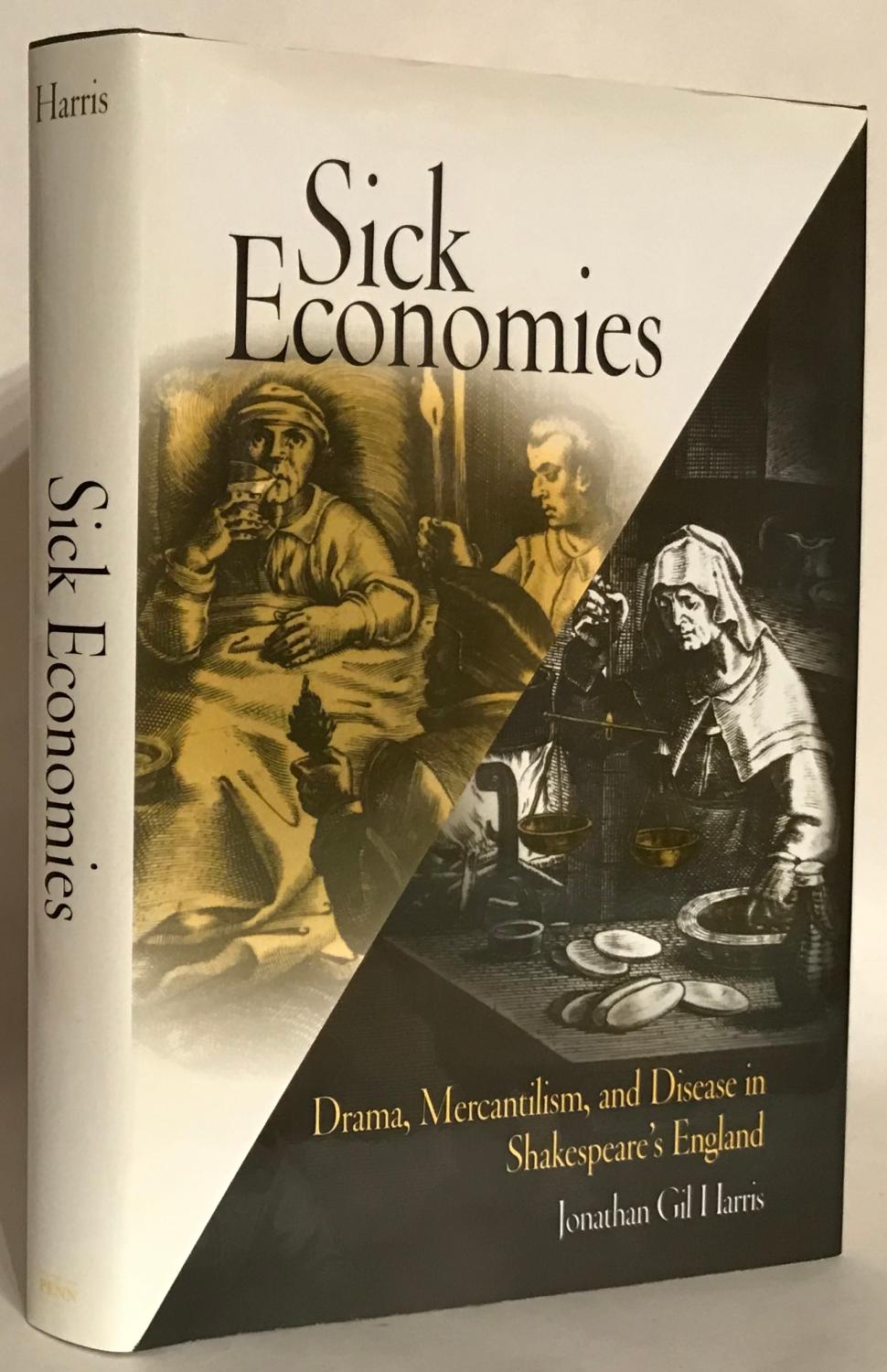Jonathan Gil Harris, Sick Economies

From time to time GW English News will spotlight recent publications by English department faculty. Today we offer a glimpse of Sick Economies: Drama, Mercantilism, and Disease in Shakespeare’s England, a critically lauded study published by Early Modernist Jonathan Gil Harris.
A native of New Zealand, Professor Harris joined our department as a full professor in 2003. His undergraduate Shakespeare course has rapidly attained legendary status. A superb teacher and researcher, we are fortunate indeed to have him among our faculty.
————-
(from the University of Pennsylvania Press website)
Sick Economies
Drama, Mercantilism, and Disease in Shakespeare’s England
Jonathan Gil Harris
From French Physiocrat theories of the blood-like circulation of wealth to Adam Smith’s “invisible hand” of the market, the body has played a crucial role in Western perceptions of the economic. In Renaissance culture, however, the dominant bodily metaphors for national wealth and economy were derived from the relatively new language of infectious disease. Whereas traditional Galenic medicine had understood illness as a state of imbalance within the body, early modern writers increasingly
reimagined disease as an invasive foreign agent. The rapid rise of global trade in the sixteenth century, and the resulting migrations of people, money, and commodities across national borders, contributed to this growing pathologization of the foreign; conversely, the new trade-inflected vocabularies of disease helped writers to represent the contours of national and global economies.
Grounded in scrupulous analyses of cultural and economic history, Sick Economies: Drama, Mercantilism, and Disease in Shakespeare’s England teases out the double helix of the pathological and the economic in two seemingly disparate spheres of early modern textual production: drama and mercantilist writing. Of particular interest to this study are the ways English playwrights, such as Shakespeare, Jonson, Heywood, Massinger, and Middleton, and mercantilists, such as Malynes, Milles, Misselden, and Mun, rooted their conceptions of national economy in the language of disease. Some of these diseases—syphilis, taint, canker, plague, hepatitis—have subsequently lost their economic connotations; others—most notably consumption—remain integral to the modern economic lexicon but have by and large shed their pathological senses.
Breaking new ground by analyzing English mercantilism primarily as a discursive rather than an ideological or economic system, Sick Economies provides a compelling history of how, even in our own time, defenses of transnational economy have paradoxically pathologized the foreign. In the process, Jonathan Gil Harris argues that what we now regard as the discrete sphere of the economic cannot be disentangled from seemingly unrelated domains of Renaissance culture, especially medicine and the theater.
“Sick Economies, wholeheartedly committed to the recovery of noncanonical early modern writing, shows what can happen when a keen literary intelligence is applied to nonliterary texts. The result is a truly interdisciplinary and refreshingly readable book.”—Times Literary Supplement
“In this important book Harris explores the early modern discourse of mercantilism, tracing its merger with the discourse of bodily illness.”—Choice
“Harris has successfully argued a decidedly unique angle of interpretation. What may have initially struck the reader as an impossibly broad scope of inquiry is revealed, through rigorous textual analysis, as an intriguing interdisciplinary perspective that will certainly impact subsequent scholarship.”—Comitatus
“This book offers great insight into the Renaissance discourses of the body, the emergence of mercantile theory, and early modern drama.”—Seventeenth-Century News
Table of Contents
1. The Asian Flu; Or, The Pathological Drama of National Economy
2. Syphilis and Trade: Thomas Starkey, Thomas Smith, The Comedy of Errors
3. Taint and Usury: Gerard Malynes, The Dutch Church Libel, The Merchant of Venice
4. Canker/Serpego and Value: Gerard Malynes, Troilus and Cressida
5. Plague and Transmigration: Timothy Bright, Thomas Milles, Volpone
6. Hepatitis/Castration and Treasure: Edward Misselden, Gerard Malynes, The Fair Maid of the West, The Renegado
7. Consumption and Consumption: Thomas Mun, The Roaring Girl
8. Afterword: Anthrax, Cyberworms, and the New Ethereal EconomyJonathan Gil Harris is Professor of English at George Washington University and the author of Foreign Bodies and the Body Politic: Discourses of Social Pathology in Early Modern England.






